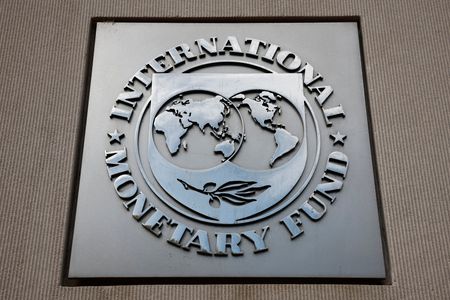By Shariq Khan
NEW YORK (Reuters) -Oil prices fell about 2% to their lowest in four months on Thursday, extending a run of declines into a fourth day, due to concerns about oversupply in the market ahead of a meeting of the OPEC+ group over the weekend.
Brent crude futures fell $1.20, or 1.8%, to $64.15 a barrel by 2:45 p.m. ET (1845 GMT), the lowest since June 2. U.S. West Texas Intermediate crude dropped $1.30, or 2.1%, to settle at $60.48 a barrel, the lowest since May 30.
OPEC+ could agree to raise oil production by up to 500,000 barrels per day in November, triple the increase for October, as Saudi Arabia seeks to reclaim market share, three sources familiar with the talks said.
Jorge Montepeque, managing director at Onyx Capital Group, said some banks, such as Macquarie, have put out predictions of a super glut in oil markets, which have weighed on sentiment.
“The writing is on the wall,” investment research firm HFI Research wrote in a blogpost. “US oil inventories will build into year-end, and more global visible inventory builds will take place. Couple that with higher OPEC+ crude exports, and the end result is a persistently weaker oil market environment,” they wrote.
The Energy Information Administration said on Wednesday that U.S. crude oil, gasoline and distillate inventories rose last week as refining activity and demand softened.
Oversupply concerns have been compounded by signs of weak demand, PVM Energy analysts wrote. “Oil demand forecasts diverge considerably, but on average, they show this year’s figure revised down by 150,000 bpd between January and September,” they noted.
The Group of Seven nations’ finance ministers said on Wednesday they will take steps to increase pressure on Russia by targeting those who are continuing to boost purchases of Russian oil.
Limiting oil’s losses, the U.S. will provide Ukraine with intelligence for long-range missile strikes on Russian energy infrastructure, two officials told Reuters on Wednesday, confirming an earlier Wall Street Journal report.
This will make it easier for Ukraine to hit refineries, pipelines and other infrastructure with the aim of depriving the Kremlin of revenue and oil, the WSJ said.
“There is some concern in the market again that Russian oil could get disrupted,” said Giovanni Staunovo, commodity analyst at UBS. But as long as there are no disruptions yet, the impact on prices will likely be minor, he said.
Stockpiling demand from China, the world’s largest crude oil importer, also underpinned oil prices, limiting the downside, traders said.
Meanwhile, the largest U.S. fuel conduit, the Colonial Pipeline, restarted after a brief outage on Thursday due to unplanned system maintenance, a company spokesperson said.
(Reporting by Shariq Khan, Anna Hirtenstein, Shadia Nasralla, Yuka Obayashi and Siyi Liu; Editing by Chizu Nomiyama, Nick Zieminski and Cynthia Osterman)










